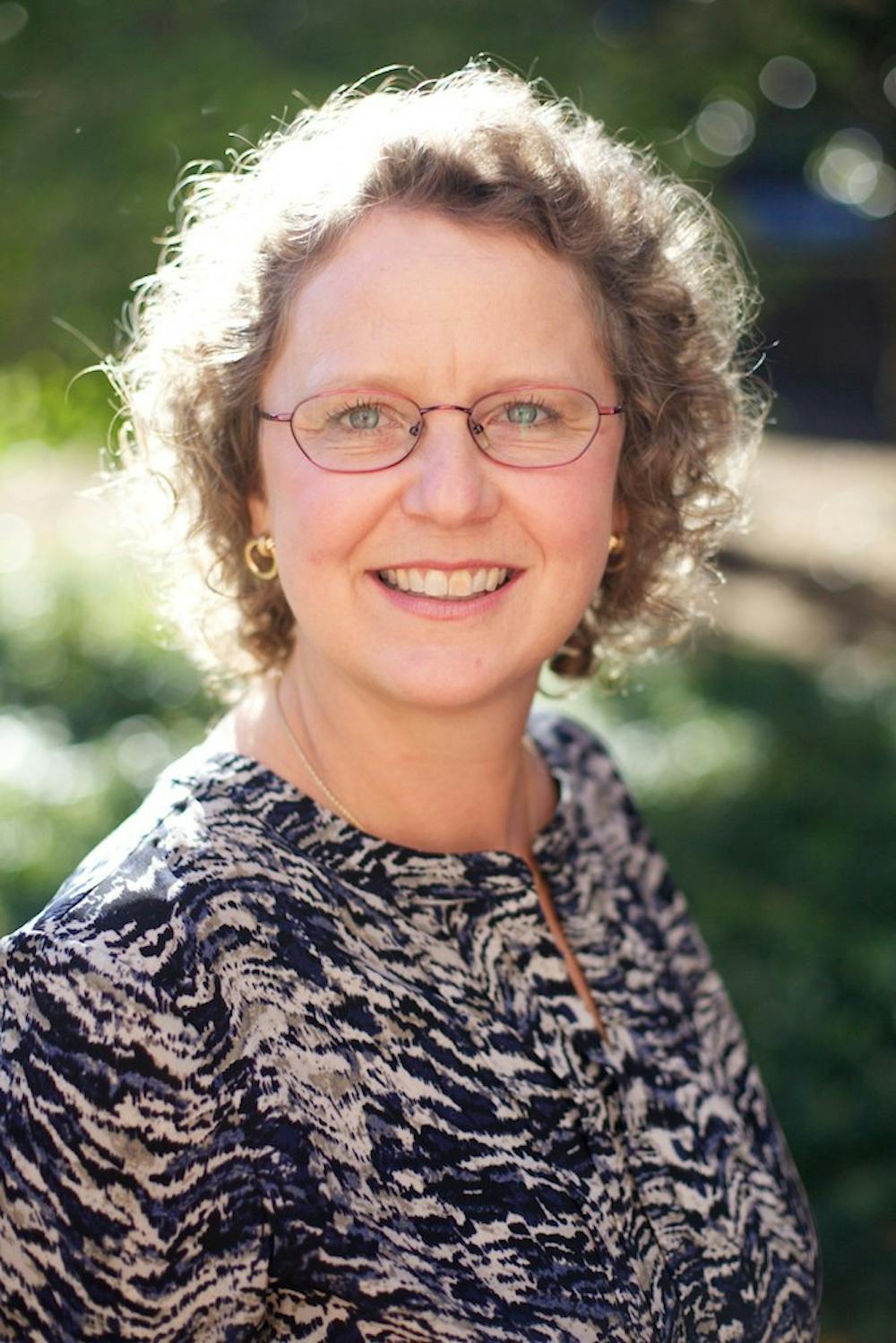Pamela Norris, executive engineering associate dean for research, was only in fourth grade when she realized she wanted to be an engineer. At the end of a field trip to a NASA-sponsored learning lab, Norris and her classmates were shown a large computer that asked them what two subjects lead to a degree in Engineering.
“Everyone was guessing and getting it wrong,” Norris said. “I guessed my two favorite topics, math and science, and got rewarded with bells and whistles and a little patch that said ‘Engineering.’ I went home and told my mom, who was like a 25-year-old single mom and had no idea what engineering was.”
As the first person in her family to attend college, Norris’ mother showed great pride in her.
“She gave me this wonderful gift of having confidence in me and making me have confidence in myself,” Norris said.
Along with her role as associate dean, Norris is also the Frederick Tracy Morse professor for the Department of Mechanical and Aerospace Engineering — and the first woman to make it to full professorship in the department. When she came to U.Va., Norris was one of two women — and after her peer left, she was the only woman in the department for at least six years, she said. Before that, in 1992, Norris became the second woman at the Georgia Institute of Technology to earn a doctorate in Mechanical Engineering.
While at Georgia Tech, Norris participated in a program where she was paired with a senior faculty member to teach a course in thermodynamics. This later became the first class Norris taught at the University.
“I just thought the world of the program because I knew how important it was to my development,” Norris said. “When I came to U.Va., for years I proposed that we do the same thing here.”
Norris experienced some resistance, as the University traditionally only allowed courses to be taught by those with doctorate degrees at the time, especially in the Engineering School. However, after her proposal was denied several times, she was able to implement the program herself after becoming associate dean of research.
Norris’ first doctorate student was John Hostetler, who graduated from the University in 2000 and is now a chief technical officer.
“I liked working with her because she was very good at getting you self-motivated,” Hostetler said. “She gave you enough freedom and autonomy so that you could chase the idea you wanted to, but at the same time [she would] guide you down the path that was for her research.”
Hostetler interviewed with several professors before deciding to work with Norris. Together, they founded the University’s micro-scale heat transfer lab.
“Her excitement for her research was sort of contagious,” Hostetler said.
Norris was the 2016 winner of the Elizabeth Zintl Leadership Award, which honors service to the University.
“I know lots of former winners of the [Elizabeth Zintl] award. I’ve served on committees with many of them and they’re all people I respect and think so much of, so it was really humbling for me to be put in that same category,” Norris said. “Often time the people that win the leadership awards are high-level University leadership, so it’s really exciting when they recognize the leadership that comes from below.”
Recently, Norris was quoted in a Washington Post article that recognized the University for having the highest percentage of women in engineering for top public universities. Reflecting on the article, Norris said while the University may boast a high percentage, it was measured across all engineering disciplines. Some disciplines, such as mechanical engineering, are still less than 20 percent female.
“I think it’s really important to make sure that students have role models, so I think it’s really important to increase the representation on the faculty of women and minorities,” Norris said. Currently, there are three female professors in Mechanical Engineering, and one in a joint appointment, Norris said.
Not only an inspiration to her students, Norris’ two children both want to be engineers when they grow up. She said one of her proudest moments as a mom was when she asked her two children, Abbey and Alex — at the time 11 and 9 years old — how they wanted to spend a day in Los Angeles. After giving them options including Disneyland and the beach, they chose the Science Museum at UCLA, where they spent eight hours.
“Both of them have done a lot of science projects looking at alternative energy sources,” Norris said. “Abbey always has these really far-out ideas. You don’t want to squash that with, ‘That breaks the second law of thermodynamics, honey!’”
Her daughter wants to be an inventor, while her son is a self-proclaimed ‘math-machine.’
While engineering’s mixture of science and math was enough to draw in Norris and her kids, Norris said she believes redefining engineering will increase diversity in the field.
“Women and minorities, research has shown, want to do something that’s going to make the world a better place. They want to do something that addresses a challenge or a need for the world, they want to leave the world in better condition than they found it. This is engineering if we describe it right,” Norris said.







